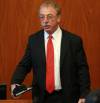Devil in details of Sheegl’s emails on police HQ
Advertisement
Read this article for free:
or
Already have an account? Log in here »
To continue reading, please subscribe:
Monthly Digital Subscription
$0 for the first 4 weeks*
- Enjoy unlimited reading on winnipegfreepress.com
- Read the E-Edition, our digital replica newspaper
- Access News Break, our award-winning app
- Play interactive puzzles
*No charge for 4 weeks then price increases to the regular rate of $19.00 plus GST every four weeks. Offer available to new and qualified returning subscribers only. Cancel any time.
Monthly Digital Subscription
$4.75/week*
- Enjoy unlimited reading on winnipegfreepress.com
- Read the E-Edition, our digital replica newspaper
- Access News Break, our award-winning app
- Play interactive puzzles
*Billed as $19 plus GST every four weeks. Cancel any time.
To continue reading, please subscribe:
Add Free Press access to your Brandon Sun subscription for only an additional
$1 for the first 4 weeks*
*Your next subscription payment will increase by $1.00 and you will be charged $16.99 plus GST for four weeks. After four weeks, your payment will increase to $23.99 plus GST every four weeks.
Read unlimited articles for free today:
or
Already have an account? Log in here »
Hey there, time traveller!
This article was published 23/03/2022 (1356 days ago), so information in it may no longer be current.
Phil Sheegl told lawyers for the city he wasn’t “a computer geek.”
That’s why he said he wouldn’t be able to find emails he’d sent to a construction company president, with whom a judge recently ruled he conspired with to get a secret commission.
But the RCMP found those emails.

Ultimately, the hundreds of emails didn’t lead to criminal charges against Sheegl, or anyone else involved in the awarding of the construction contract for the Winnipeg police headquarters.
However, the messages sent between Sheegl and the president of Caspian Construction played a leading part in last week’s finding that Sheegl was given a $327,000 bribe to award the HQ contract to Caspian.
It’s just one of the key points in the 129-page decision by Chief Justice Glenn Joyal of Manitoba Court of Queen’s Bench.
He ruled that Sheegl, the city’s former CEO, had accepted a $327,000 bribe from the president of Caspian.
Joyal also agreed to the request by the city for a summary judgment to equal not just the $327,000 alleged bribe, but also the $250,000 Sheegl was paid in severance when he resigned in late 2013.
More than a decade earlier, before Caspian had submitted an official bid for the contract, its president Armik Babakhanians, emailed Sheegl words that still resonates today: “(the project) will be your and your group’s legacy for many years to come.”
It began when the outer facade of the police headquarters — the Public Safety Building on Princess Street — was at risk of coming loose and falling on pedestrians and vehicles. For years, the city relied on braces to hold the facade in place and put covered walkways around the building.
The mayor and councillors debated whether they should pay to renovate the PSB or move police to another building.
Around that time, in April 2008, the city hired Sheegl, best known as the developer behind the Sky Waterfront Condominiums, but also the presiding officer of the city’s Board of Revision which hears property assessment appeals, as its new director of the planning, property and development department.
Sheegl was also a friend of Sam Katz, who was mayor at the time.
Then-councillor Jenny Gerbasi questioned Sheegl’s qualifications and the hiring process because it was led by a policy adviser for Katz, who acted as chief administrator.
After Sheegl was hired, Katz said “to be very frank with you, when I first heard Phil was interested, I tried talking him out of it… I wouldn’t wish that grief and aggravation on anybody, let alone a friend. But as you can see, he didn’t take my advice.”
By May 2011, Sheegl was promoted to CAO, the city’s top bureaucrat.
One year earlier, a few weeks before the Oct. 27, 2010 election in which Katz won the mayoral race, one of the earliest emails reveals a dinner meeting had been set up for Oct. 1 between Katz, Sheegl, Babakhanians and others to “discuss possible business arrangement.”
By December, Babakhanians was saying “he (Sheegl) could be Caspian’s friend for a long time to come” and Sheegl was emailing another civic bureaucrat to talk with the legal department about lowering bond requirements for the police HQ so Caspian would be better positioned to get the contract. Another Sheegl email recommended the deadline for bids be extended by a month.
When the city agreed to extend the deadline for bids, Sheegl emailed Armik saying “Here you go my friend!”
Then, in January, when Babakhanians tells Sheegl they really want the contract, Sheegl responds, “I know and you know I will do everything to help us all succeed here together.”
A month later, Babakhanians writes a note to himself saying Sheegl had told him he would get approval for a $126-million budget for the project and “this will remain confidential forever.”
Later that year, Caspian was awarded a construction contract to build the police HQ on Graham Avenue, in the former post office. It was worth $137.1 million.
Two years later, when cost overruns took the project up to $210 million, city council ordered an external audit. The audit found the city hadn’t appraised the building before buying it. Another audit determined Caspian did not even have to bid for the construction contract it was awarded.
Sheegl, who was interviewed by lawyers as part of the court action, claimed the two payments he received from Babakhanians, totalling $327,000, weren’t a bribe but the proceeds of a real estate deal to buy an acre of land in Tartesso, Ariz., which he and Katz owned.
But Joyal said that deal was never disclosed to the city and no evidence was even offered in court to substantiate it.
“Were I to find that Sheegl’s undisclosed receipt of the $327,000 payment from Armik… did not constitute a breach of fiduciary duty, I would in my view be sending a preposterous message,” Joyal said.
“The message would be nothing short of suggesting that high-ranking public officials can do business in secret with persons seeking contracts from the very public bodies for whom public officials work.”
Sheegl’s lawyer said Sheegl would not commenting on the judge’s ruling and Katz did not return a message.
It’s incredibly rare for a case of bribery to be put before the courts.
The judge said lawyers for the city not only had to rely on Canadian legal decisions, but also precedents from England. Those judgments showed he didn’t have to look into the motives behind the bribe, and after an undisclosed payment has been established, “there is indeed an irrebuttable presumption that the payor intended to influence the payee, that the payee was in fact influenced, and that the principal has suffered damage in the amount of the bribe.”
Then there is that deck that was built at Sheegl’s residence.
The city found out about it in those emails the RCMP had found.
In a note from Babakhanians to Sheegl on May 30, 2013, the subject line was “your deck” and a message said “it’s scheduled for June 13.”
After a bill was sent to Babakhanians from Deck City, asking for payment, he sent a response to the company, and blind-copied Sheegl, saying he would ask the clients who received the deck if they were happy with it.
Sheegl’s response? “They did a good job, it looks fabulous.” Another email, from Sheegl’s wife to Babakhanians a year later, asked for the name of the company that had built the deck.
Joyal said that years later, Sheegl showed city lawyers a cheque for $8,534.41 he had sent to a company which was a subcontractor for Caspian.
Noting the cheque was dated, Oct. 15, 2017, more than four years after the deck was completed, Joyal said “the city asks and this court wonders, what could possibly have prompted Sheegl’s payment after more than four years?
“(The) city insists that it was the publicity regarding the previous payments and the RCMP seizure that suggested to Sheegl that it would be prudent to reimburse (the subcontractor).”
kevin.rollason@freepress.mb.ca
Winnipeg (City) v. Caspian Projects Inc. et al.

Kevin Rollason is one of the more versatile reporters at the Winnipeg Free Press. Whether it is covering city hall, the law courts, or general reporting, Rollason can be counted on to not only answer the 5 Ws — Who, What, When, Where and Why — but to do it in an interesting and accessible way for readers.
Our newsroom depends on a growing audience of readers to power our journalism. If you are not a paid reader, please consider becoming a subscriber.
Our newsroom depends on its audience of readers to power our journalism. Thank you for your support.











